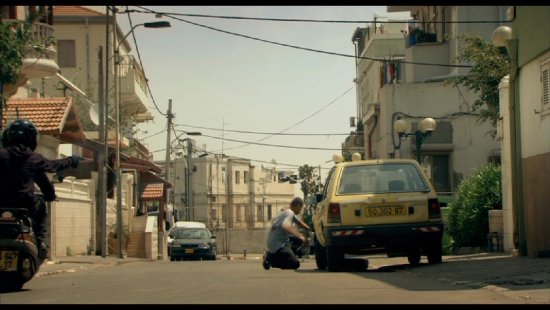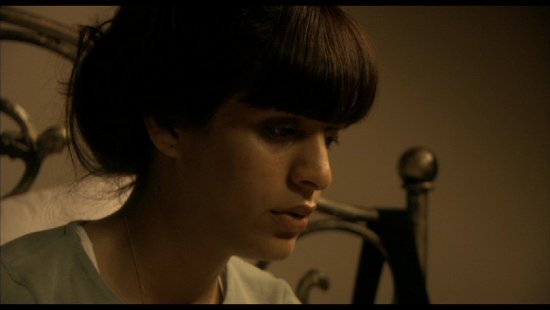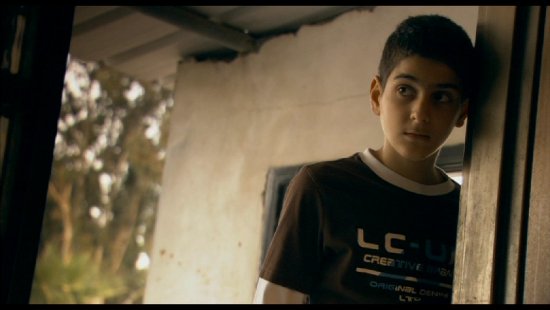Review for Ajami
Ajami
2009; Dir: Scandar Copti
Film
Touted as an Israeli equivalent of the gob-smacking, City of God, Ajami is a film that arrives on DVD with a wave of critical enthusiasm. One of those pictures that proved to be the toast of Cannes, Ajami also enjoyed an Oscar Nomination for Best Foreign Film. Additionally, the work has received awards closer to home, and at the London Film Festival.
The downside of such acclaim is that it often creates unrealistic expectations. Indeed, expectations of any sort for a film like Ajami can be very dangerous indeed. More damaging, can often be the comparisons to other successful foreign-language efforts, particularly those as lauded as City of God. Ajami is a film then, that largely succeeds by confounding such expectations and providing a much different experience perhaps than one would hope.
The film is narrated by Nasri, a thirteen year old, whose Uncle assaults an opposing group member. His attack is avenged by a hit arranged on Nasri's older brother, Omar. However in the absolutely shocking opening moments, Nasri's neighbour- a young boy himself, is accidentally shot instead of Omar. The shooting is a powerful, though abrupt moment that confirms the grim, violent tone lurking under the surface of the remainder of the film. From there, we follow Omar, as the local Christian owner of a restaurant (Abu Elias) agrees to help broker a deal with the leaders of the village to pay-off the family who has the gripe with his uncle. The majority of the film picks up off these developments, as Omar has a secret attraction for the Abu -Elia's daughter, and is forced to follow a treacherous path in order to raise money to settle the dispute. His tale is weaved into several others; Malek is an illegal Palestinian refugee, who work in Abu-Lias' establishment, hoping to earn enough cash to fund a life-saving operation for his sick mother. Dando, is a cop, perhaps corrupt, searching for his missing brother, while other characters become involved in the entanglement.
The less said about the remainder of the plot, the better though, as the way in which the story is told creates suspicion within the viewer, and challenges audience preconceptions. There is copious usage of flashbacks, and ever-changing timelines in order to achieve this. Ajami unfolds in a deliberate way in which you are expected to be rash, and make judgements about things you see. There is certainly more at work than you are first led to believe, and as the descent into a drug deal unravels, viewers are forced to rethink their initial assessments of characters and their moral stance on the events that transpire.
This s not by any stretch of the imagination, a popcorn movie.
With Scandar Copti's film, a big part of said risk is with the format of the film itself, in this case; that his picture does not follow a linear storyline .Instead we are presented with a series of incidents and occurrences, that do not follow chronologically, but as they add up, combine to create an overall image. It's a brave approach that is sure to isolate viewers who wish to view something more simplistic, and more reassuring. Ajami is certainly not those things. Along the way there are several heartbreaking moments, and is in Crash, occasions in which it is impossible not to get caught up in events, and become extremely irritated by the behaviour of the protagonists. From the outside, looking-in, it appears that things could be resolved so much easier if a little time and patience was exhibited. However, characters are trapped in their places, bound by what is acceptable within both their families, and religions. As we near the end, it doesn't get any easier either. In a noble effort, the filmmakers have decided to intensify the hopelessness, and the cynicism towards attaining a better life grows as the situations seem more unlikely to improve for all involved.
Just as bravely, the cast is comprised of a bunch of non-actors; local citizens fill the roles instead. Obviously, this could have been disastrous, but they imbue the piece with a sincerity throughout the honest, unpretentious performances. No words are wasted, no actions unnecessary, as the entire cast deliver natural responses to the spiralling series of events around them. Almost uniformly, they provide a likeability and heart that prevents the overall piece from become suffocating in it's resolute nihilism. Youssef Sahwani, as Abu-Lias, particularly impresses, with an almost Paul-Sorvino styled portrayal of a man with the respect and authority of his local community. Omar's character is also exquisitely played by Shahir Kabaha, and his journey is the centrepiece of the film, even if the destination is arrived at in disorientating fashion
Audio and Visual
Nothing special, but the 1.85:1 transfer is fairly crisp and clear.
The 2.1 surround Audio is a little on the low side at times, though it actually helps with the documentary realism, with the actors coming across as a natural rather than rehearsed.
Extras
None.
Conclusion
This is not the film I expected to see. Advertising would certainly suggest it sits comfortably somewhere between the shattering City of God, and Paul Haggis's exhausting, provocative, Crash. Ajami however does not come together as the sum of it's parts in the same way those two efforts did.
Instead, the structure is wildly unusual and requires the utmost of attention. Fortunately, it rewards such attention, even if for some, the ending may appear contrived.
Much like with neo-realist Mafioso flick, Gomorrah, Ajami depicts a county in utter chaos, with senseless marauding and the futility of the ordinary person in attempting to avoid a life of criminality and violence. Gomorrah's structure though, was not entirely satisfying, often providing enough of one segment to whet the appetite, before pulling away in favour of separate strand and ultimately failing to entirely satisfy, despite genuinely stirring moments, and an overall sense of worth and ambition.
To suggest that Ajami is not a fascinating, incendiary piece of work however, is to do it an extreme injustice. For the most part, it is both satisfying, while been distinctly ambitious. People are unfairly judged, and miscommunication and misunderstanding is absolutely rampant in the world of Ajami. As in Crash, the lives of characters are irreparably ruined based on a simple lack of ability to communicate. In this place, an unwillingness, and in some cases, inability to empathise or understand leads to lives changing forever. It's a fragile, heart-breaking place to visit, and the tight-rope the film often wanders along reflects that. Fragile and alien to most of us, Ajami is a moving, absorbing, if imperfect, and demanding effort, that absolutely deserves to reach a vast audience.




































Your Opinions and Comments
Be the first to post a comment!